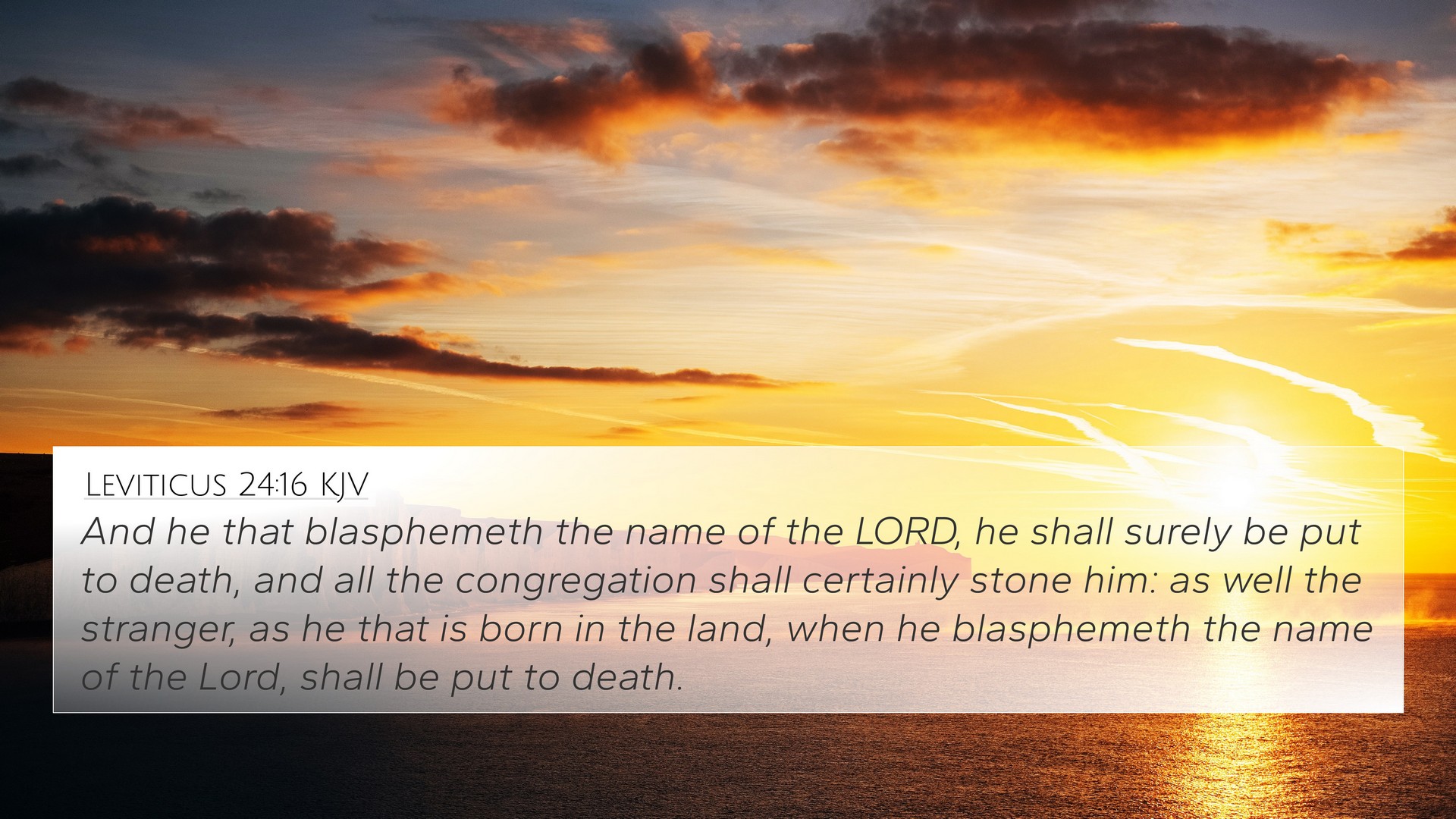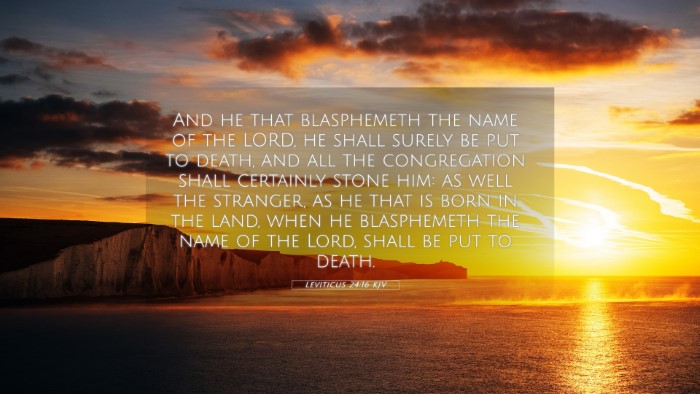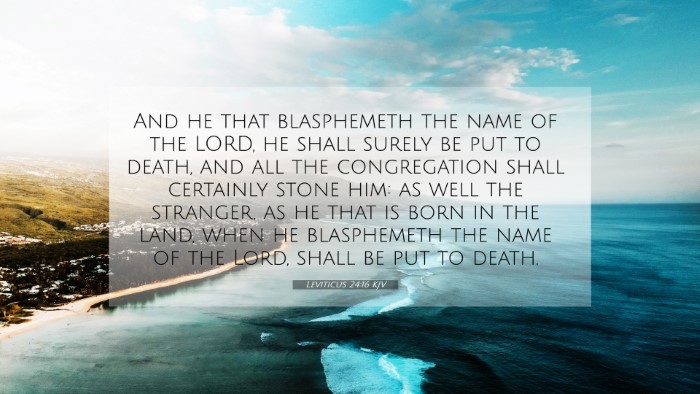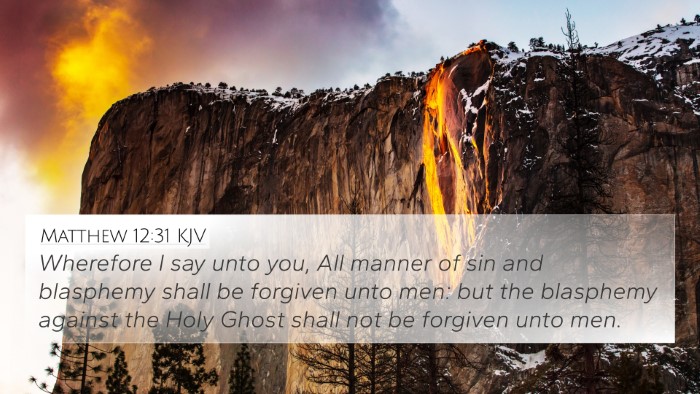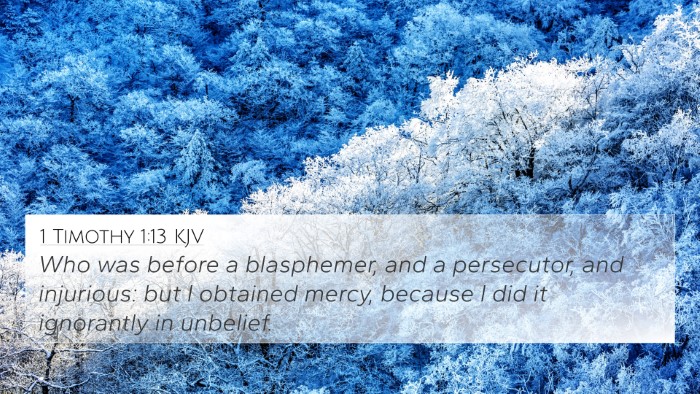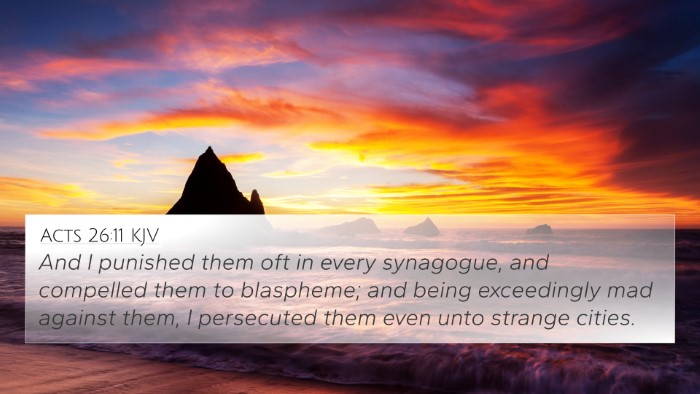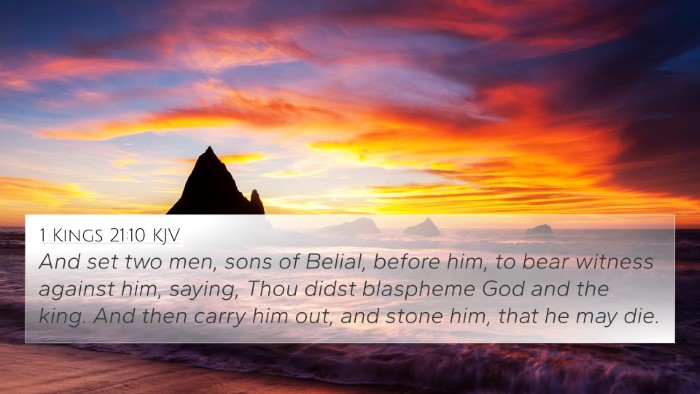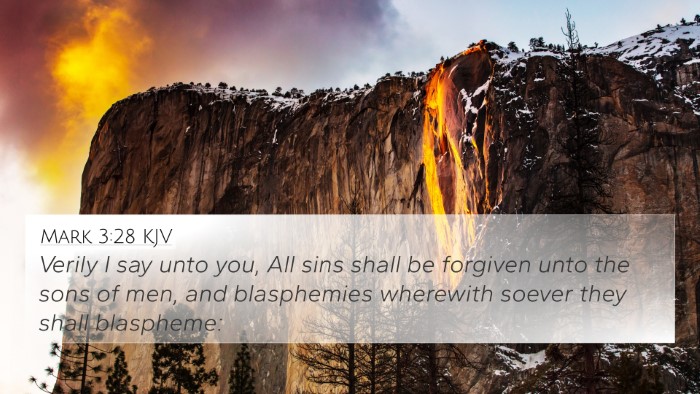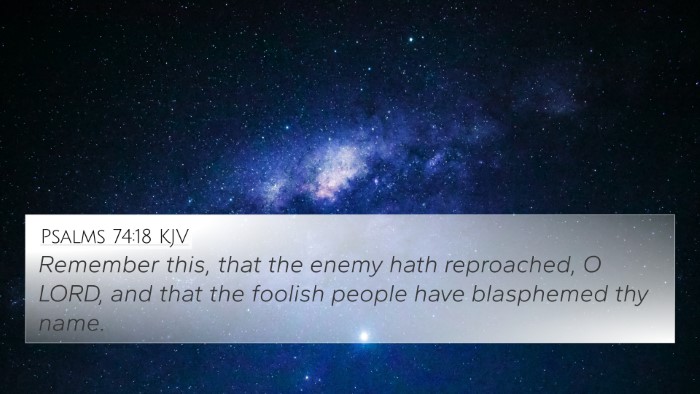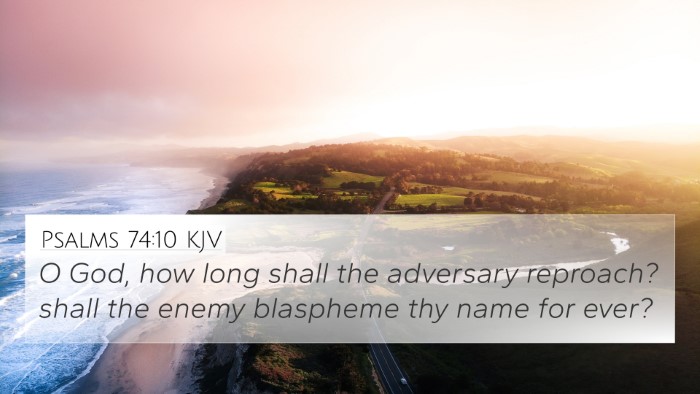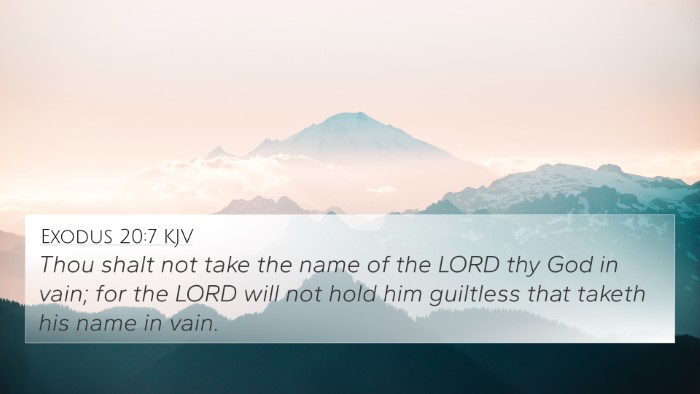Understanding Leviticus 24:16
Leviticus 24:16 states: "And he that blasphemeth the name of the Lord, he shall surely be put to death, and all the congregation shall certainly stone him: as well the stranger, as he that is born in the land, when he blasphemeth the name of the Lord, shall be put to death." This verse addresses the serious nature of blasphemy against God, highlighting the fierce reverence that God commanded among His people.
Summary of Key Interpretations
To gain a deeper understanding of this verse, we can look at insights from public domain commentaries, such as those of Matthew Henry, Adam Clarke, and Albert Barnes. Here we combine their perspectives:
-
Matthew Henry’s Commentary:
Henry emphasizes the gravity of blasphemy, linking it to an open defiance of God's authority and a serious affront to His holiness. He notes that such actions not only harm the individual but also corrupt the community, thereby necessitating a swift and severe response for the sake of collective moral integrity.
-
Albert Barnes’ Notes:
Barnes points out that the prescribed punishment reflects the ancient Israelite belief in the sanctity of God's name. Blasphemy was not merely a personal offense; it was an act that could jeopardize the spiritual health of the entire community. He suggests this verse calls for accountability both individually and corporately.
-
Adam Clarke’s Commentary:
Clarke stresses the importance of distinguishing between intentional blasphemy and ignorance. He recognizes the cultural context of the Israelites, emphasizing the principle that God's name must be revered and protected rigorously against any form of dishonor, illustrating the severe consequences meant to deter such grave offenses.
Cross-References and Related Verses
In examining Leviticus 24:16, several Bible verses can be used to cross-reference and understand its implications:
- Exodus 20:7: "Thou shalt not take the name of the Lord thy God in vain; for the Lord will not hold him guiltless that taketh his name in vain." This verse reflects the same sanctity of God's name.
- Deuteronomy 13:5: "And that prophet, or that dreamer of dreams, shall be put to death; because he hath spoken to turn you away from the Lord your God." This emphasizes the seriousness of leading others astray, akin to blasphemy.
- Matthew 12:31-32: "Wherefore I say unto you, All manner of sin and blasphemy shall be forgiven unto men: but the blasphemy against the Holy Ghost shall not be forgiven unto men." Jesus elaborates on blasphemy, indicating its severe consequences.
- Acts 6:11: "Then they suborned men, which said, We have heard him speak blasphemous words against Moses, and against God." An example of blasphemy in the New Testament context.
- 1 Timothy 1:20: "Of whom is Hymenaeus and Alexander; whom I have delivered unto Satan, that they may learn not to blaspheme." Paul discusses individuals who committed blasphemy within the church.
- Psalm 74:10: "O God, how long shall the adversary reproach? shall the enemy blaspheme thy name for ever?" This reflects on the consequences of blasphemy in a broader, more poetic lamentation.
- Revelation 13:6: "And he opened his mouth in blasphemy against God, to blaspheme his name, and his tabernacle, and them that dwell in heaven." This indicates the continual presence of blasphemous offenses against God throughout scripture.
Thematic Connections
This verse highlights themes of:
- Holiness of God's name: The reverence due to God's name aligns firmly with the larger Biblical narrative about God's character.
- Community Integrity: It underscores the responsibility of the community to protect spiritual values.
- Consequences of Sin: The severe punishment for blasphemy exemplifies the consequences of sin within the covenant community.
Conclusion
Leviticus 24:16 serves as a profound reminder of the sanctity of God's name and the severe repercussions associated with blasphemy. The cross-referenced verses broaden our understanding and highlight interconnections throughout Scripture that reinforce the importance of respect and honor toward God. It’s a call for both individual responsibility and collective accountability within the community of faith.
Tools for Further Study
To explore these themes deeper, consider utilizing:
- Bible concordance
- Bible reference resources
- Cross-reference Bible study guides
- Comprehensive Bible cross-reference materials
- Tools for Bible cross-referencing
